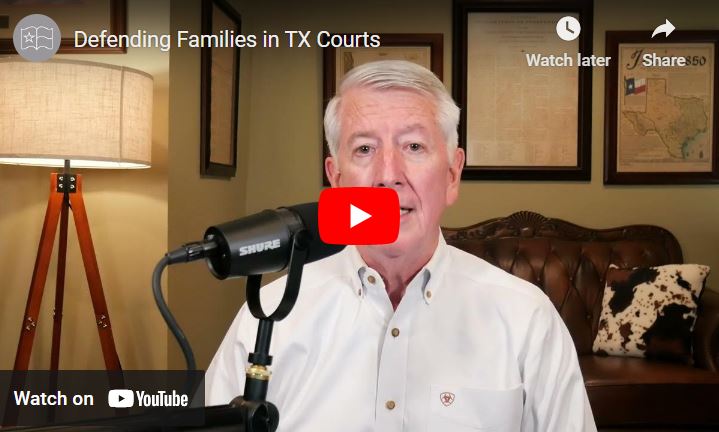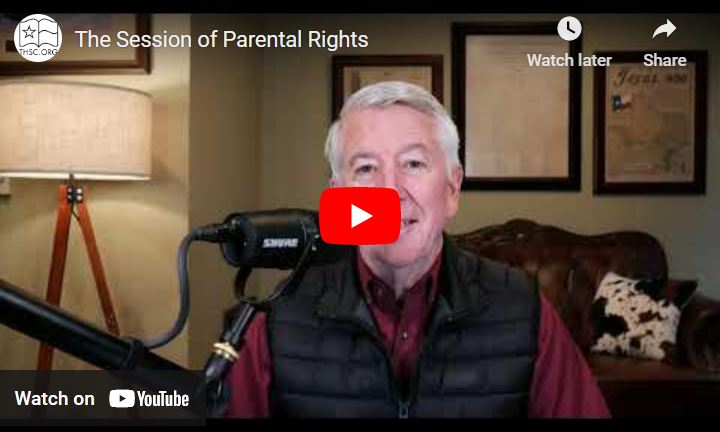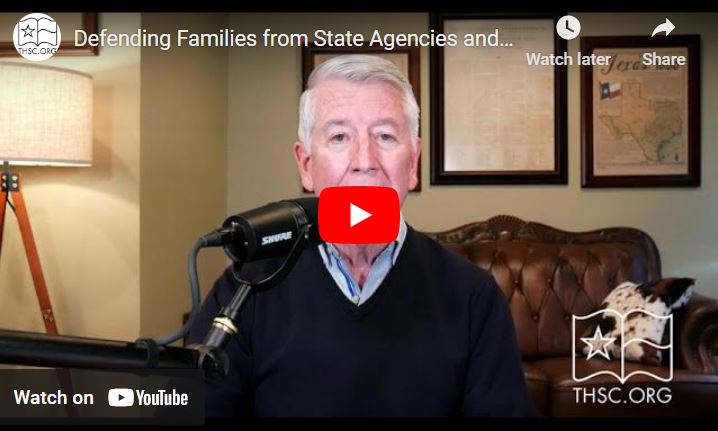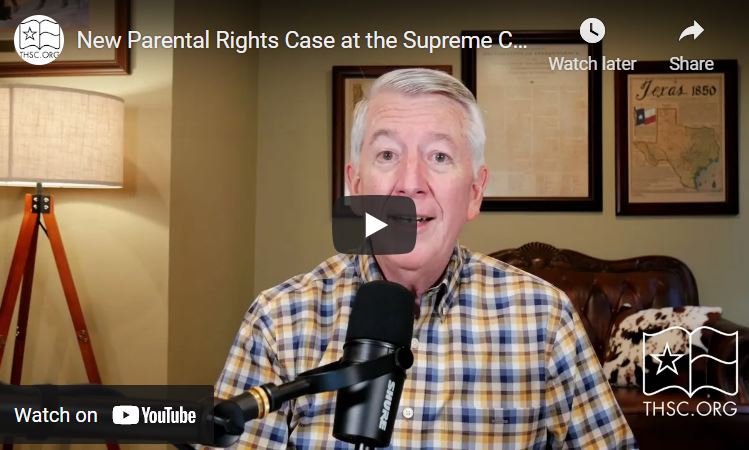The Texas Family Code requires the best interests of the child to be a court’s primary consideration in child custody cases.
So how is a court supposed to determine what the child’s best interests are?
How It’s Supposed to Work
In short, the court isn’t supposed to decide — the child’s parents are supposed to decide what’s in their child’s best interests. A court is only allowed to intervene and make a different decision if two fit parents can’t agree about parenting decisions or if the parent’s decisions would harm the child.
When two fit parents can’t agree on how to raise their child, courts use a list of factors outlined by the Supreme Court of Texas to “break the tie” between the parents. These factors include things such as the emotional and physical needs of the child and the stability of proposed homes for the child.

The Problem With How It Actually Works
Unfortunately, courts often use the process for “breaking a tie” when it shouldn’t apply. For instance: when a relative sues a parent for possession of the parent’s child. In these cases, courts will often attempt to “break the tie” between the parent and the non-parent — except that the case isn’t a tie at all because the non-parent doesn’t have any parental say.
The Supreme Court of the United States ruled over 20 years ago that the parenting decisions of a fit parent are constitutionally presumed to be in the best interests of the child.
In divorce cases, because there are two parents who disagree but whose decisions are both presumed to be in the best interests of the child, courts have to intervene in some capacity to make the final decisions. However, in cases between one parent and one non-parent, there is only one party (the parent) whose decisions are presumed to be in the best interests of the child.
This means that the court has to default to accepting the parent’s decisions since those decisions are in the best interests of the child (which is the court’s primary consideration).
Sadly, many judges fail to accept the parent’s decisions by default and instead overrule the parent’s decisions in an attempt to break the non-existent tie in the case.
The Solution We’re Working On
In order to remedy this problem, THSC is working on a bill called the Family Unity Act that would insert into Texas law the constitutional requirement that courts have to presume that fit parents’ decisions are in the best interests of the child. This would allow judges and attorneys to easily access the requirement when deciding cases.
The bill would also clearly state that parents have the fundamental right to make decisions for their children on a broad range of topics, including education.
We believe that a loving family home is the best environment for children. If you do too, please stay informed and be prepared to contact your legislators in support of the Family Unity Act.
Text “TXHOMESCHOOL” now to 919191 to receive legislative alerts about the Family Unity Act and other bills that THSC is working on as we continue Keeping Texas Families Free!
The Texas Family Code requires the best interests of the child to be a court’s primary consideration in child custody cases.
So how is a court supposed to determine what the child’s best interests are?
How It’s Supposed to Work
In short, the court isn’t supposed to decide — the child’s parents are supposed to decide what’s in their child’s best interests. A court is only allowed to intervene and make a different decision if two fit parents can’t agree about parenting decisions or if the parent’s decisions would harm the child.
When two fit parents can’t agree on how to raise their child, courts use a list of factors outlined by the Supreme Court of Texas to “break the tie” between the parents. These factors include things such as the emotional and physical needs of the child and the stability of proposed homes for the child.

The Problem With How It Actually Works
Unfortunately, courts often use the process for “breaking a tie” when it shouldn’t apply. For instance: when a relative sues a parent for possession of the parent’s child. In these cases, courts will often attempt to “break the tie” between the parent and the non-parent — except that the case isn’t a tie at all because the non-parent doesn’t have any parental say.
The Supreme Court of the United States ruled over 20 years ago that the parenting decisions of a fit parent are constitutionally presumed to be in the best interests of the child.
In divorce cases, because there are two parents who disagree but whose decisions are both presumed to be in the best interests of the child, courts have to intervene in some capacity to make the final decisions. However, in cases between one parent and one non-parent, there is only one party (the parent) whose decisions are presumed to be in the best interests of the child.
This means that the court has to default to accepting the parent’s decisions since those decisions are in the best interests of the child (which is the court’s primary consideration).
Sadly, many judges fail to accept the parent’s decisions by default and instead overrule the parent’s decisions in an attempt to break the non-existent tie in the case.
The Solution We’re Working On
In order to remedy this problem, THSC is working on a bill called the Family Unity Act that would insert into Texas law the constitutional requirement that courts have to presume that fit parents’ decisions are in the best interests of the child. This would allow judges and attorneys to easily access the requirement when deciding cases.
The bill would also clearly state that parents have the fundamental right to make decisions for their children on a broad range of topics, including education.
We believe that a loving family home is the best environment for children. If you do too, please stay informed and be prepared to contact your legislators in support of the Family Unity Act.
Text “TXHOMESCHOOL” now to 919191 to receive legislative alerts about the Family Unity Act and other bills that THSC is working on as we continue Keeping Texas Families Free!











